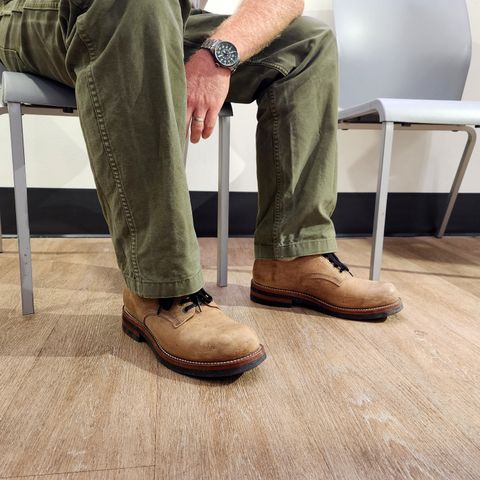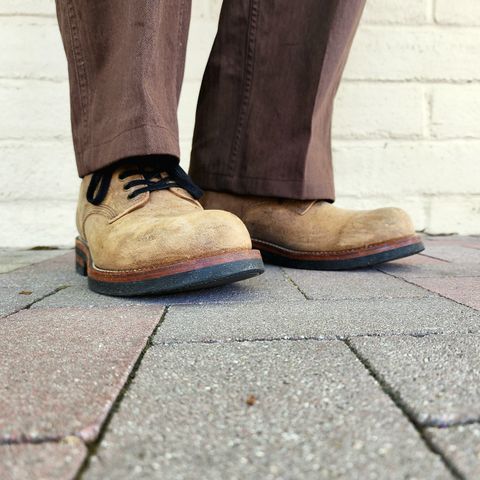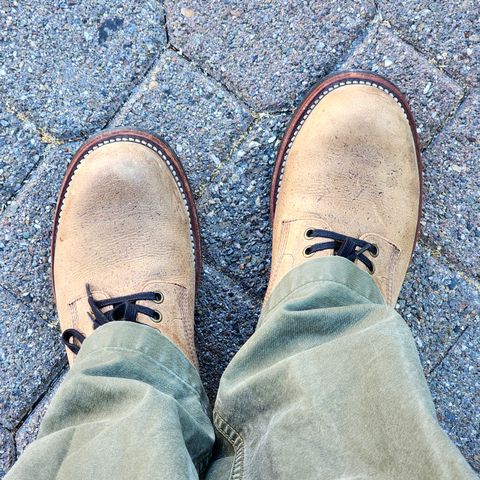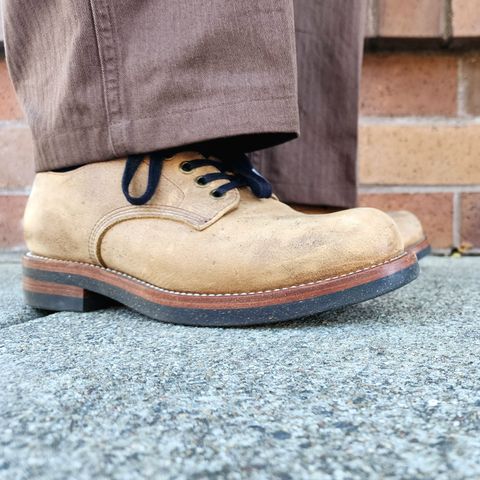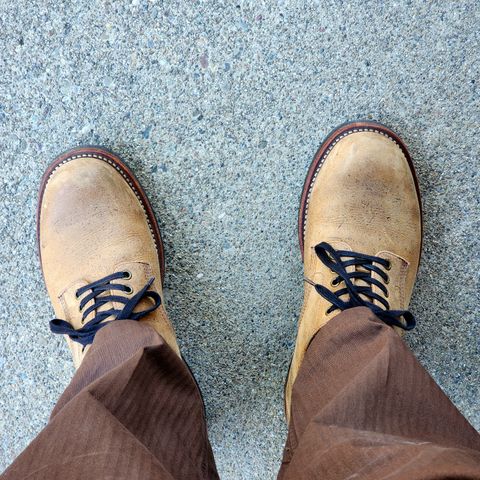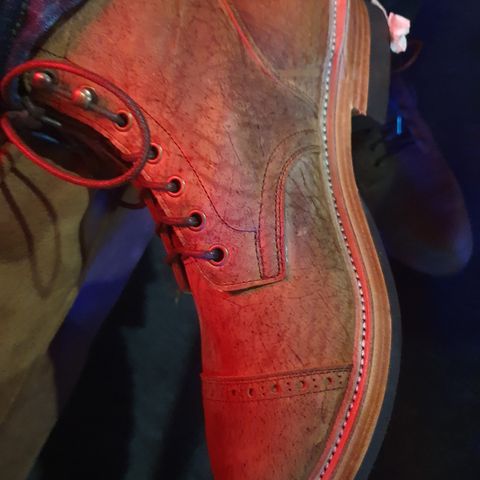About
Camel is a color variant of Kudu Classic leather produced by Charles F. Stead, the English tannery based in Leeds. The colorway represents one of the lighter shades available in the Kudu Classic line, which features a more formal appearance than the casual Kudu Waxy variant.[1]
About
Camel is a color variant of Kudu Classic leather produced by Charles F. Stead, the English tannery based in Leeds. The colorway represents one of the lighter shades available in the Kudu Classic line, which features a more formal appearance than the casual Kudu Waxy variant.[1]
The leather maintains the characteristic natural marks and scratches from wild kudu antelope while presenting a classic gloss finish that differentiates it from the matte surface of waxed kudu leathers. Color availability varies seasonally, with blemishes and character marks appearing more prominently on lighter colored skins like Camel.[1][2]
Characteristics
Camel Kudu Classic shares the fundamental properties of the Kudu Classic line while offering a specific color profile. The leather features more pronounced grain compared to Kudu Waxy variants, with a glossy finish rather than the matte pull-up characteristic of waxed treatments.[1][2] The material readily burnishes, developing additional depth and character with wear.[1]
Each hide exhibits unique natural variations, as the leather preserves the marks and scratches acquired by kudu antelope during grazing. These wild animal characteristics ensure no two pieces appear identical, with natural scars, imperfections and texture variation present throughout.[3] The very natural tanning process results in each skin differing from the next, contributing to the leather's distinctive appearance.[4]
Specifications
Technical specifications for Camel Kudu Classic align with standard Kudu Classic parameters established by Charles F. Stead. Average skin sizes measure 13 to 15 square feet, though specific hides may vary slightly from these averages.[1] The thickness ranges from 1.6 to 2.2 millimeters, providing substantial material suitable for footwear construction.[1]
Weight specifications indicate 4.5 to 5.5 ounces, equivalent to the 1.8 to 2.2 millimeter thickness range.[1][2] Similar color variants in the Kudu Classic line, such as Caramel, typically measure approximately 11 square feet per hide.[2]
Notable applications
Parkhurst Brand utilizes Camel Kudu Classic from Charles F. Stead in their Allegany boot model. This boot employs the 645 last, featuring a rounder, more voluminous toebox combined with a wider ball and narrow arch and heel configuration.[3] The construction emphasizes enhanced breathability and shock absorption through leather components rather than synthetic materials.[3]
The boot's design accommodates the natural characteristics inherent to kudu leather, acknowledging that natural scars, imperfections and texture variation will differ from pair to pair. This variability reflects the authentic wild animal origin of the material rather than representing manufacturing inconsistency.[3]
References
"Classic Kudu". Charles F Stead and Co Ltd. Retrieved September 30, 2025.
"C.F. Stead Kudu Classic Leather". The Tannery Row. Retrieved September 30, 2025.
"The Allegany - Camel Kudu (645)". Parkhurst Brand LLC. Retrieved September 30, 2025.
"CFS Classic Kudu Collection". A & A Crack & Sons. Retrieved September 30, 2025.
